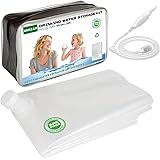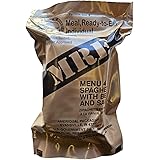How to Survive a Financial Crisis: Tips for Preppers
Top 4 Semantic Keyword Phrases
- Emergency savings strategies
- Preparing for economic downturns
- Budgeting during a crisis
- Essential skills for self-sufficiency
Emergency Savings Strategies
Understanding the Importance of an Emergency Fund
Let’s face it, life can throw some serious curveballs your way. I remember when I faced an unexpected job loss; it felt like my world was upside down. That’s when I realized just how crucial an emergency fund really is. Ideally, you should aim to save enough to cover at least three to six months of expenses. This way, you won’t have to panic if an unforeseen circumstance arises.
Building this fund isn’t something that happens overnight. Start by setting aside even a small amount each month. Honestly, every little bit helps. I once even dedicated a spare $25 from my grocery budget to my emergency savings. Over time, you’d be surprised how fast it adds up. Just visualize what you’re saving for and keep that goal in front of you.
Lastly, keep your emergency fund accessible but not too easy to dip into. A high-yield savings account can work great here. It’s a perfect balance of being safe while earning a bit more interest than a regular account. You’ll thank yourself later when you’ve got those extra bucks nestled away for a rainy day.
Automating Your Savings
Automating your savings is a game-changer. I set up an automatic transfer to my emergency savings account right after payday. It’s almost like a bill you pay to yourself! Seriously, in the beginning, I didn’t even notice the money missing from my checking account, and after a while, I couldn’t believe how much I saved. Out of sight, out of mind, right?
You can start small. Make it a habit to transfer a percentage of each paycheck automatically. As your income grows, you can increase that percentage. The idea here is to create a painless way of saving. Trust me, if I can do it, you can too!
Remember, the goal is consistency over a lengthy period. Before you know it, you’ll have a nice little cushion built up, and you’ll feel more secure when that next “big surprise” pops up.
== > What if ... Get a FREE Subscription to PREPARE
Finding Extra Income Opportunities
Sometimes, your regular paycheck just doesn’t cut it, especially when life gets wild. I’ve dived into a few side hustles over the years, from freelancing to selling handmade crafts online. The key is to find something that suits your skills and schedule.
Focus on what you enjoy; it’ll make the hustle a lot more fun. For instance, if you love writing, consider freelancing or starting a blog. If you’re a whiz in the kitchen, think about catering or prepping meals for friends and family.
Another great idea is decluttering and selling things you don’t use anymore. I made a sweet chunk of change by selling old clothes and electronics that were gathering dust. Trust me, every extra dollar counts, especially during tough times.
Preparing for Economic Downturns
Staying Informed and Prepared
Knowledge is power, my friends. It’s critical to stay updated on economic trends and forecasts. I like to keep an eye on reliable news sources and follow economic experts on social media. Their insights can help us anticipate financial shifts and make informed decisions ahead of time.
When I sense a downturn is brewing, I tighten my budget and start prepping to take on additional expenses. If I expect a recession, I will avoid big purchases and keep my credit card bills as low as possible.
You can also check out local community resources. Many offer financial literacy workshops. I attended a few in person where I found great tips and gathered a ton of useful local info.
Diversifying Your Investments
Not putting all your eggs in one basket—this is key when it comes to investing. I’ve learned the hard way that relying too much on one investment can lead to anxiety during downturns. Consider diversifying across various asset classes, like stocks, bonds, and real estate to cushion yourself a bit more.
You may also want to look into low-risk investments that are less likely to drop in value during a recession. It’s often a solid strategy to keep some funds in more stable investments while still aiming for growth over the long haul.
Consult a financial advisor if you’re unsure where to start. It’s worth the time and investment to ensure you’re covered from all angles.
Networking and Building Resources
Building a strong support network can make a tremendous difference. I’ve started attending local meetups and community events to connect with others who are likewise focused on prepping. You never know who might have resources or insights that can help during a crisis.
Also, consider forming a barter group with friends or neighbors. We’ve traded services among our community, which has been super rewarding and a cost-saver. I’ve baked my neighbor’s pets for a couple of deliveries from her side gig. Win-win!
Plus, when times get tough, it helps to lean on others. Sharing information as a community can make all the difference. Having someone to talk to reduces the overall stress level.
Budgeting During a Crisis
Assessing Your Current Financial Situation
The first step to effective budgeting is knowing where you stand financially. When I was in tough times, I took a hard look at my expenses and earnings. I wrote it all down to avoid skimming the surface of my financial situation. It was overwhelming at first, but seeing it laid out set the foundation to make informed adjustments.
Break down your expenses. I like to categorize them into needs and wants. This helped me see where I could make cuts. I quickly discovered I could swap a few restaurant trips with home-cooked meals – a whole lot healthier and way easier on the wallet!
Finally, set realistic financial goals. This could be saving for necessities or planning to pay off debts faster. Keep those targets front and center to help guide your decisions, especially during challenging times.
Creating a Flexible Budget Plan
A flexible budget goes a long way, especially in times of uncertainty. I learned that it’s essential to adjust my budget regularly, especially as my situation evolves. Use personal finance apps to track your spending and adjust your limits as needed.
Also, don’t be afraid to experiment with your budget. I often try different budgeting methods to see what feels right – it’s all about finding a system that works for you.
Remember that your feelings about money matter, too. Managing your budget wisely can lessen anxiety and improve your overall quality of life, turning that chaos into calmness.
Cutting Unnecessary Expenses
When your budget is tight, it’s time to cut back on the extras. I remember challenging myself to go an entire month without dining out. Not only did I save money, I actually discovered my love for cooking again. It’s amazing how little changes can make a huge difference.
Look for subscriptions and services you don’t use regularly—streaming services, unused gym memberships, etc. That stuff adds up quicker than you think. Cut those back; you’ll be surprised how liberating it feels!
Another tip? Get creative with entertainment. I’ve found free local events and outdoor activities that keep me entertained—hiking, community fairs, and local markets. Staying thrifty doesn’t mean being bored!
Essential Skills for Self-Sufficiency
Learning Basic DIY Skills
Developing some DIY skills can save you a ton of cash in a crisis. I’ve taken on simple home repair projects, which not only saved money but also gave me a great sense of accomplishment. YouTube is teeming with tutorials that can teach you everything from fixing leaky faucets to minor car repairs.
Start with small projects. I tackled my leaking sink first, and after realizing how easy it was, I became more confident in handling more complex tasks. Every skill you pick up will empower you more to rely on yourself when finances get tight.
Plus, networking with handy friends can help you learn! I often knock on the door of my buddy next door when I have a question—it’s a win-win when you share skills.
Gardening and Food Preservation
Growing your food can help tremendously in cutting costs. I’ve become quite the little gardener over the past few years, starting with just a few herbs in pots. Now I’m growing vegetables, and it’s been a blast. Not only does it save money, but I also love knowing what goes into my food.
If you’re limited on space, even small containers can work. I’ve seen friends make the most out of balconies or window sills to grow fresh herbs or tomatoes. And if you have a little more space, consider community gardens!
Food preservation techniques are equally vital. Learning how to can or freeze fresh produce means you can enjoy the bounty of your garden year-round. It’s an excellent way to stretch your food budget and reduce waste—perfect during financially tight situations.
Developing Financial Literacy
Being financially literate is crucial in navigating financial crises. I sought out resources—books, blogs, podcasts—that focus on personal finance. Getting educated made me feel empowered to make better decisions and take control of my financial future.
Take advantage of free workshops offered in your community. I’ve learned so much from local experts in discussions over budgeting techniques and investing strategies. The best part? Connecting with others looking to improve their situations too.
Making an effort to improve your financial literacy will help you feel more confident in managing money. Remember, knowledge is power; the more you know, the better equipped you’ll be.
Frequently Asked Questions
What is the first step to take during a financial crisis?
The first step is to assess your financial situation. Take a close look at your income, expenses, and what debts you have. This will help you understand where you stand and what needs immediate attention.
How can I build an emergency fund quickly?
Start by setting up automatic transfers to a separate savings account. Even modest amounts add up over time. Look for ways to reduce your expenses and divert the money towards your fund.
What are the best budgeting techniques during a crisis?
Create a flexible budget that allows for adjustments as your situation changes. Utilize apps to track your spending and categorize your expenses. Cutting unnecessary costs is essential to stay afloat.
Why is self-sufficiency important in a financial crisis?
Self-sufficiency can significantly ease financial burdens in times of crisis. By learning essential skills like DIY repairs and gardening, you reduce dependency on external services, thereby saving money and increasing resilience.






